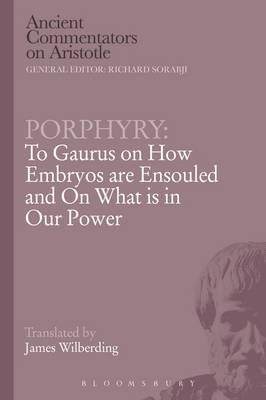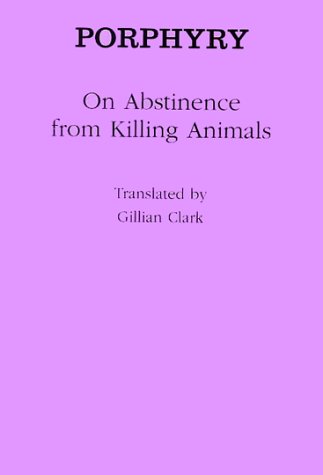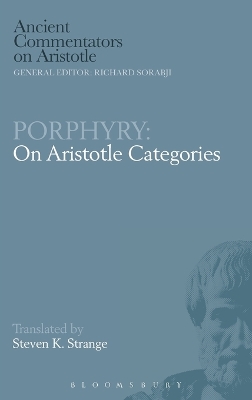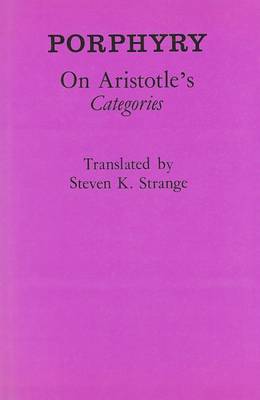Ancient Commentators on Aristotle
4 total works
Porphyry: To Gaurus on How Embryos are Ensouled and on What is in Our Power
by Porphyry
Published 24 February 2011
Concerning embryos, Porphyry takes an original view on issues that had been left undecided by his teacher Plotinus and earlier by the doctor Galen. What role is played in the development of the embryo by the souls or the natures of the father, of the mother, of the embryo, or of the whole world? Porphyry's detailed answer, in contrast to Aristotle's, gives a significant role to the soul and to the nature of the mother, without, however, abandoning Aristotle's view that the mother supplies no seed. In the fragments of On What is in Our Power, "Porphyry" discusses Plato's idea that we choose each of our incarnations, and so are responsible for what happens in our lives.
This volume contains an English translation of the two commentaries, as well as extensive notes, an introduction and a bibliography.
This volume contains an English translation of the two commentaries, as well as extensive notes, an introduction and a bibliography.
Porphyry's On Abstinence from Killing Animals is one of the most interesting books from Greek antiquity for both philosophers and historians. In it, Porphyry relates the arguments for eating or sacrificing animals and then goes on to argue that an understanding of humans and gods shows such sacrifice to be inappropriate, that an understanding of animals shows it to be unjust, and that a knowledge of non-Greeks shows it to be unnecessary.
There are no Neoplatonist commentaries on Aristotle's Ethics from the period AD 250-600. Thus, although this work is not a commentary on Aristotle, it fills a gap in this series by going to the heart of ethical debates among Neoplatonists around AD 300, and revealing one ascetic Neoplatonist's view of the ideal way of life. It also records rival positions taken on the treatment of animals by Greek philosophers over the previous six hundred years.
There are no Neoplatonist commentaries on Aristotle's Ethics from the period AD 250-600. Thus, although this work is not a commentary on Aristotle, it fills a gap in this series by going to the heart of ethical debates among Neoplatonists around AD 300, and revealing one ascetic Neoplatonist's view of the ideal way of life. It also records rival positions taken on the treatment of animals by Greek philosophers over the previous six hundred years.



